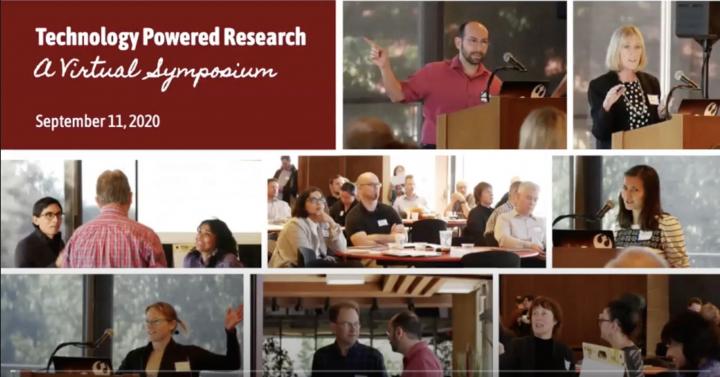Don't miss the full session recording.
Earlier this month, members of the campus IT community came together for a virtual symposium in which Stanford researchers helped “connect the dots” on how our work as IT professionals directly impacts Stanford’s research mission.
The goal
The webinar-style event aimed to help IT professionals gain real-world insight into the importance of IT to Stanford’s research mission, to generate new ideas and opportunities for IT collaborations with faculty, and to advance how we support research in the future.
Attendees got to hear directly from Stanford faculty about their research, their use of technology, and the gaps they would like our IT community help to address.
Featured faculty speakers
- Kalanit Grill-Spector, professor of psychology, spoke about her lab’s efforts to understand the neural mechanisms that enable rapid and efficient visual perception and cognition, including her work with infants and children to see brain activation upon visual stimulation. She summarized some of her group’s IT challenges, such as managing Linux workstations, keeping version consistency across a multitude of software tools and endpoints, backing up data, and building and retaining IT knowledge for problem-solving. (View recording | website)
- Sharad Goel, assistant professor of management science and engineering, covered his lab’s work to drive social impact through technical innovation. The lab’s focus includes work in criminal justice and the programs and platforms they’ve created that have been adopted in local justice systems and national journalistic agencies. He outlined his IT wish list, which included detailed CPU usage dashboards and hosting web apps. (View recording | website)
- Alison Marsden, associate professor of pediatrics (cardiology) and bioengineering, talked about her lab’s work on patient-specific modeling in cardiovascular disease and how they are adopting automotive and aerospace engineering tools for use in the medical realm. She covered her lab’s technology needs, including getting assistance with software engineering and maintaining complex and sustainable open-source software packages. (View recording | website)
Panel discussion
During the final thirty minutes, Professors Grill-Spector and Marsden were joined by other panelists to discuss the technology issues in more detail and to take questions and ideas from the audience. Themes included Linux endpoint support, storage solutions, open-source project support, models for shared research software engineers, and more
Additional panelists were:
- Zach Chandler, director, Research Information Technology and Innovation, Dean of Research
- Kurt Howerton, director of information technology, School of Engineering
- Ruth Marinshaw, chief technology officer - Research Computing
- Paul Nuyujukian, assistant professor of bioengineering and of neurosurgery
- Jon Pilat, chief information officer, School of Humanities and Sciences
Sponsors
The event was sponsored by University IT and the Campus IT Plan, a CIO Council Strategic Initiative. It was hosted by Zach Chandler, Kurt Howerton, Ruth Marinshaw, Paul Nuyujukian, Jon Pilat, and Molly Sharp on behalf of the Broad Area IT (BAIT) Working Group.
For more information
There is so much material in the presentation and panel discussion to inspire the IT community about how it can better support Stanford’s research mission. Don’t miss this opportunity to view the full session recording.


